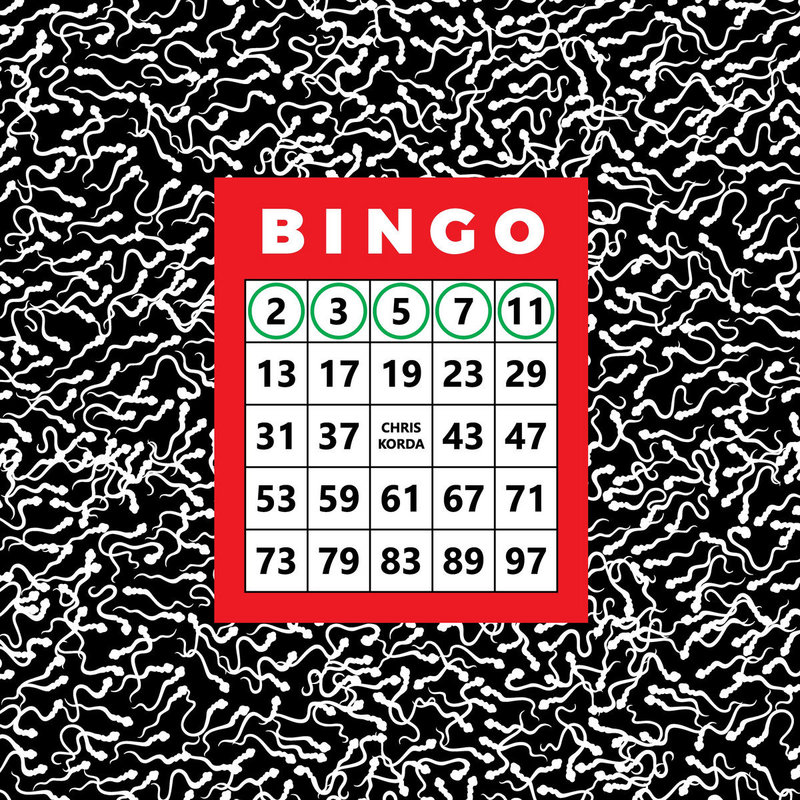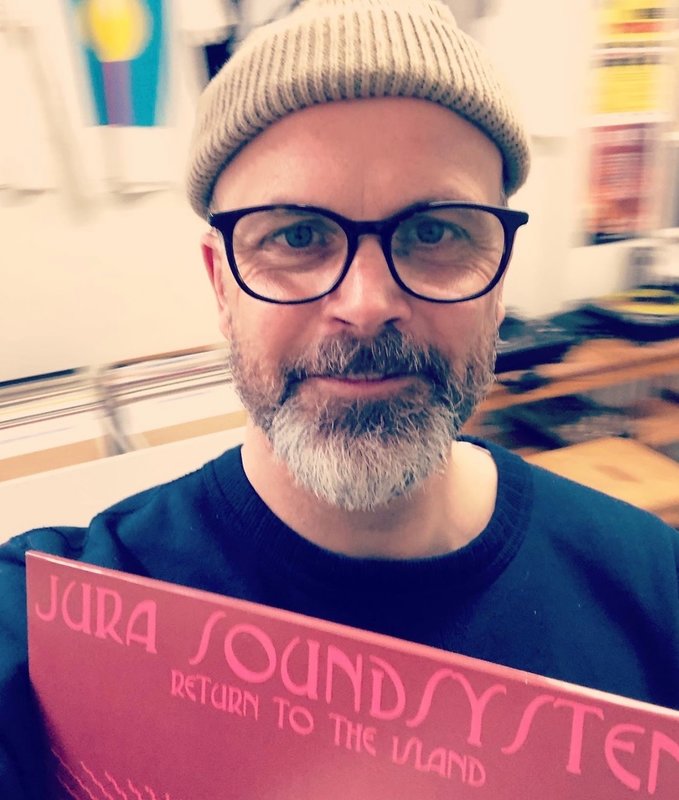I've been having out with the Make A Dance guys recently. If you don't know them they make quality but fun times music and are making waves with their label and their DJing. Josh from M.A.D was so into the new Chris Korda record he asked to an interview to discuss the release... Over to Chris and Josh.

Firstly congratulations on the EP. I first heard it on NTS radio then immediately got in touch with you to play it that weekend. I got to test it at 5am at our party in Fabric and it went down a treat. It (Baby Batter Bingo) flipped the energy in the room in the best possible way. When I heard the tracks, it immediately evoked an emotion that I haven’t felt from dance music for a long, long time.
I wrote the “Not My Problem, I’ll Be Dead” EP over a period of nine months, starting with “Have a Good One” in January 2022. It dawned on me that I was writing the opposite of my 2020 album “Apologize to the Future.” I wanted to tell the other side of that album’s story, the side I know best, having lived it.
The EP starts from the question “how do present generations regard the future?” and it’s told from the point of view of the perpetrators, meaning us. Spoiler alert: Future generations are screwed, because we’re much too busy partying and shopping to worry about them.
I’d love to talk a bit about the process and some of the techniques that went into making the tracks. So you tell us a bit about your production process, your polymeter software and the equipment (if any) you used to make the EP?
The “Not My Problem, I’ll Be Dead” EP is a brutal parody and has been compared to the work of 16th-century French iconoclast François Rabelais. Like “Apologize to the Future” it’s vocal-heavy and mostly in rhyme, but it’s more up-tempo and dance-oriented. All the tracks are in complex polymeter, meaning they use at least three relatively prime time signatures simultaneously, and they were created using my Polymeter MIDI Sequencer, which is free (open-source) and easily found online.

Maybe you could do a short breakdown of what inspired each track?
1. Baby Batter Bingo
“Baby Batter Bingo” is influenced by the writings of French economist Thomas Piketty. Its protagonist brags about winning the genetic lottery and consuming champagne and caviar by the boatload in a new Gilded Age. For the uninitiated, “baby batter” is American slang for semen. “There’s no such thing as the common good” is associated with Ayn Rand, “Who’s gonna stop me?” is from self-obsessed Serbian artist Marina Abramović, and “The little people” refers to Leona Helmsley, who infamously said “Only the little people pay taxes” before she was imprisoned for tax evasion.
The police said “we played hardball, and you lost” to Rodney King after giving him the savage beating that sparked the 1992 Los Angeles riots. The chorus “I’m tired of winning” mocks Donald Trump‘s 2016 campaign promise “We're going to win so much, you may even get tired of winning.” The neoliberal slogan “A rising tide lifts all boats” is juxtaposed with “Cake gonna slide down their throats,” echoing the apocryphal “Let them eat cake" that epitomized aristocratic arrogance in pre-revolutionary France.
2. Not My Problem, I'll Be Dead
The title track was inspired by my father, who has ended many discussions of climate change with the words “not my problem, I’ll be dead.” Last Christmas I gave him a T-shirt emblazoned with King Louis XV’s timeless quote “Après moi, le deluge” and I’m sure he wears it proudly.
3. Have a Good One
“Have a Good One” is a caricature of smugness and entitlement. It also lampoons astrology, which I despise because it’s disempowering and based on a geocentric cosmology that was proved false in the 16th century. The refrain “The heart wants what it wants” is associated with Woody Allen’s paraphilia, but was originally penned by Emily Dickinson.
4. Awesome on Mars
I wrote “Awesome on Mars” in a taxi on the way from Vienna airport to a hotel. The song was inspired by Elon Musk’s enthusiasm for colonizing Mars. He was the world’s richest person at the time, and since the rich love ostentatious displays of wealth, I pictured him replicating Las Vegas on Mars, complete with a miniature Eiffel Tower. Of course there’d be a statue of him in the spaceport. “Cruise the strip in electric hover cars” satirizes both technological utopianism and Musk’s overhyped car company.
I read you started to develop software in the 90s - it’s rare to find someone with a creative brain and mathematical / logical brain that puts the two together with such good taste. Which came first for you?
The Greek word for art is “techne” indicating that art and technology were historically inseparable. I’m an inventor / artist, and like my hero Thomas Wilfred, I build machines that generate art and music. Creativity and math are entwined pursuits of excellence, and neither came first.
I’d be remiss if I didn’t ask about the vocals. Can you tell us who’s ‘singing’ on the tracks?
As Mike says in Twin Peaks, “That cannot be revealed.” One clue: their names are Jenny and Davis.
I find a lot of dance music takes itself very seriously these days. I love the playfulness in the lyrics on these records. It’s very refreshing to hear something that’s clearly very thought out from a production standpoint, but still brings a smile to the face. What are your thoughts on the current scene, musically - are you consuming much new stuff?
As a composer, I reject the term “production” because it conflates musicality with audio engineering. It’s become common for music to be produced by non-musicians, and it shows. Musical complexity has been declining measurably for decades, and the root cause is neoliberal underinvestment in education. Music is a craft that requires formal training, including the fundamentals of melody and harmony. I’m escaping from the disco pleasure prison, and you’re welcome to join me. You can start by listening to music that isn’t in 4/4, for example my odd time playlist. Four is a bore!
It seems you’ve not stopped creating and releasing since 1992. What’s next, anything in particular you’d like to share?
I recently built a synesthesia machine called “Adagio for Color Fields” and it will be exhibited at Goswell Road Gallery in Paris, opening September 9. After that I’m exhibiting the infamous Church of Euthanasia banners in “After Laughter Comes Tears” at MUDAM in Luxembourg, opening October 12.
You can follow Chris Korda's Bandcamp HERE and also follow on INSTAGRAM. Head HERE for sound clips of the new release.

